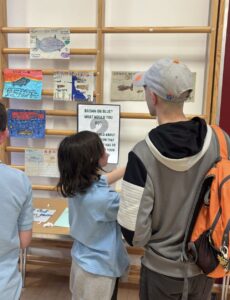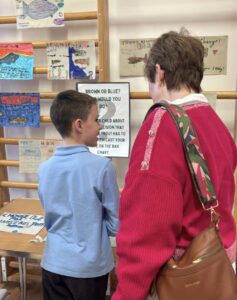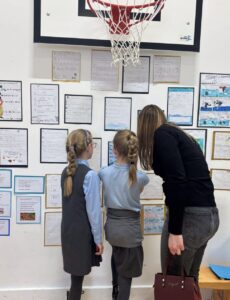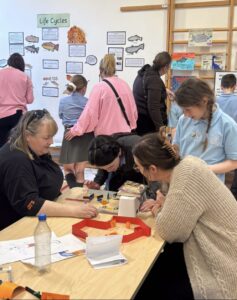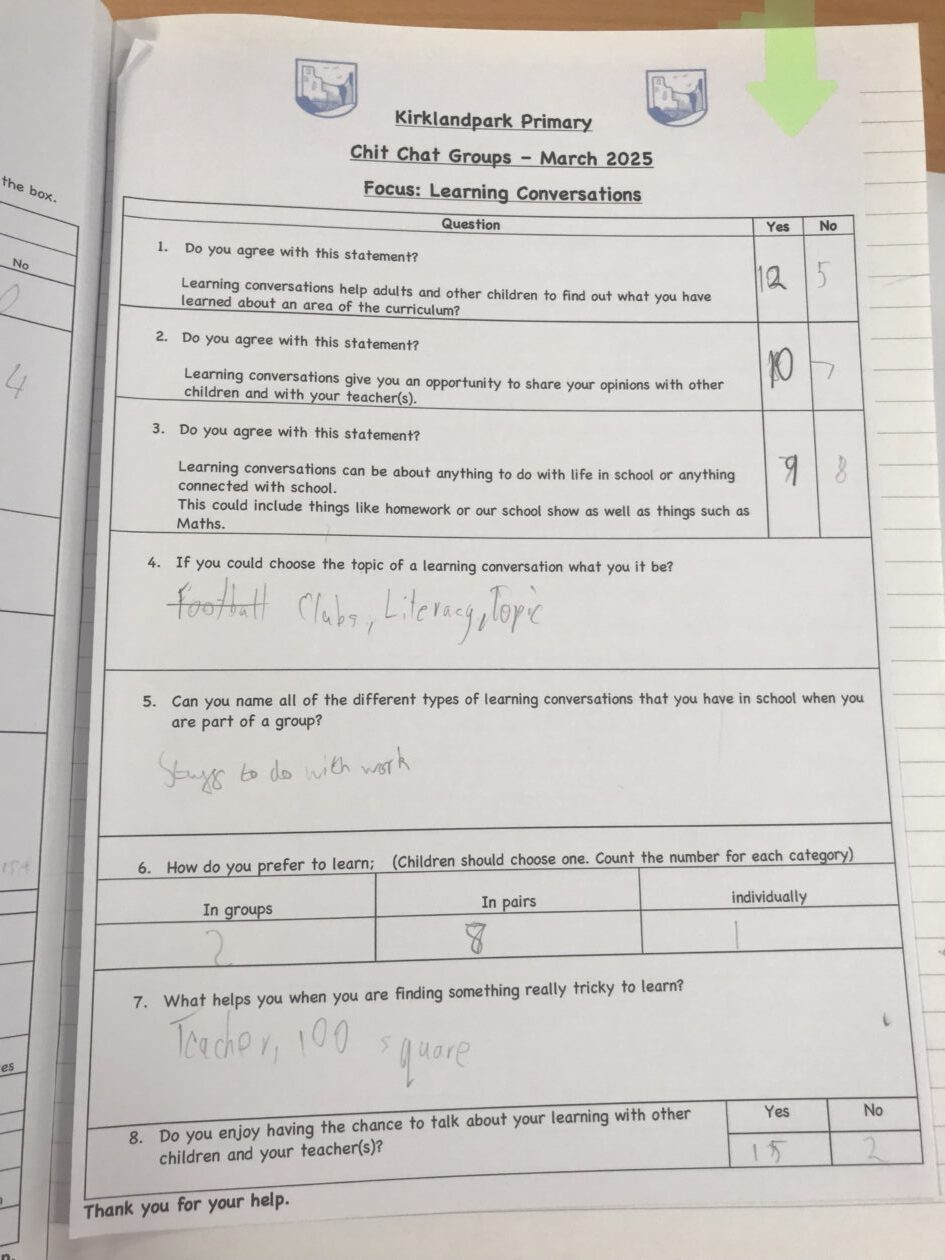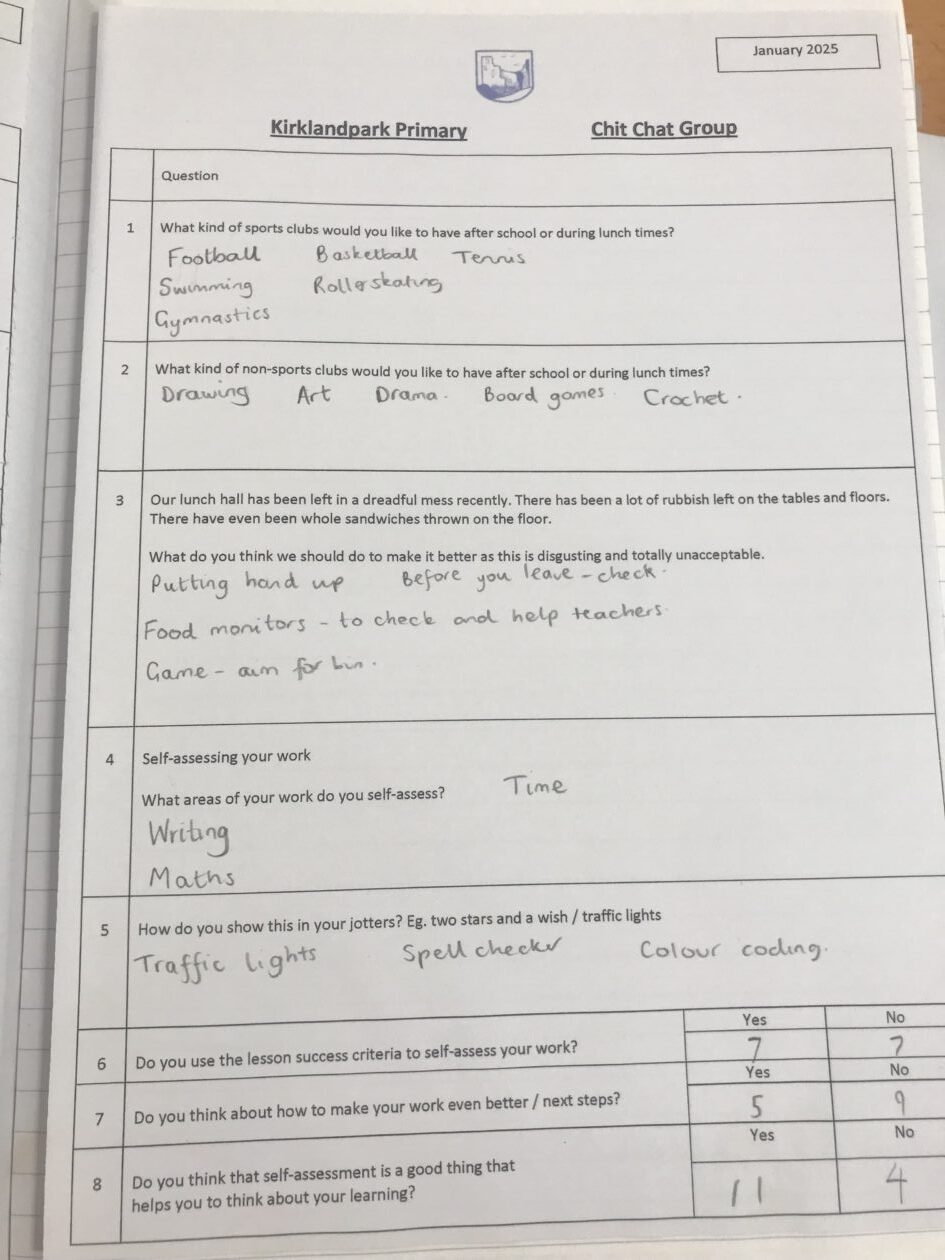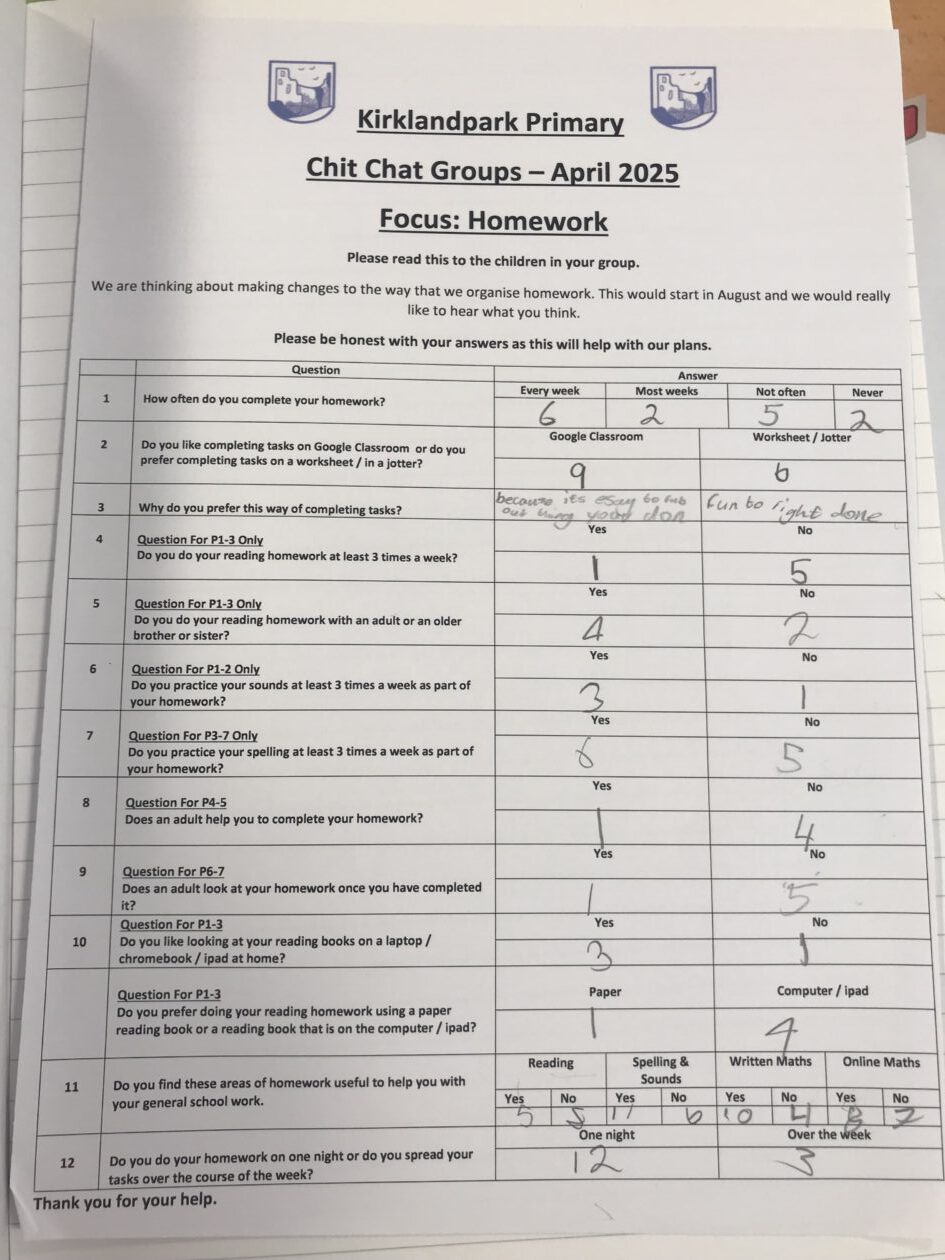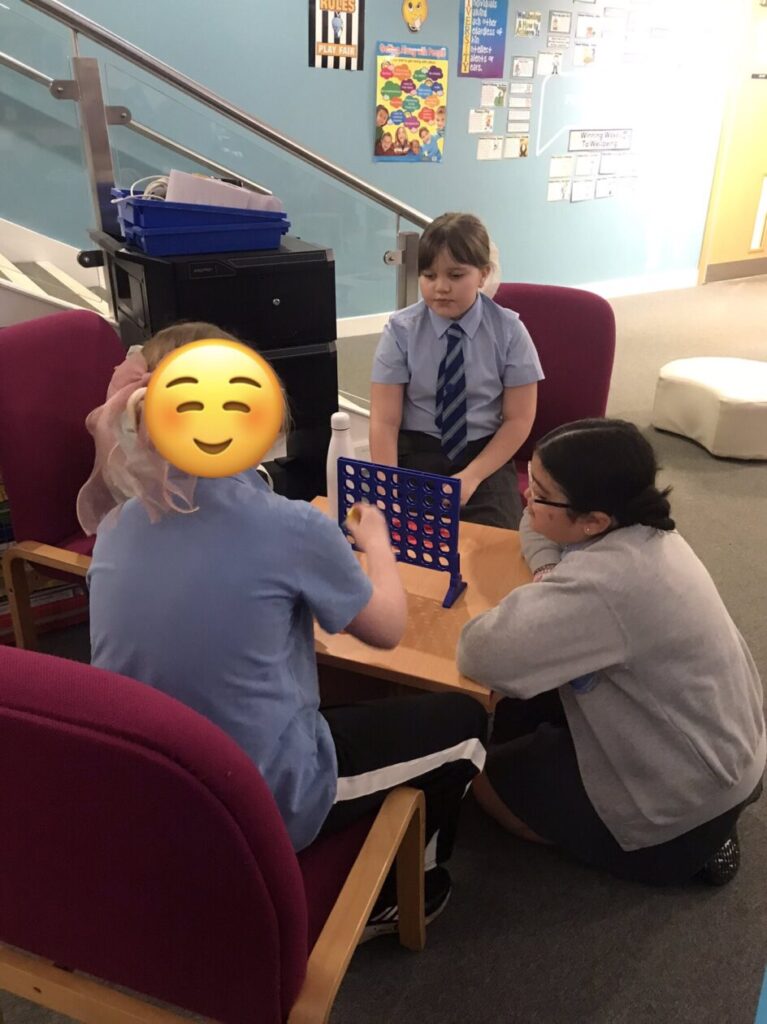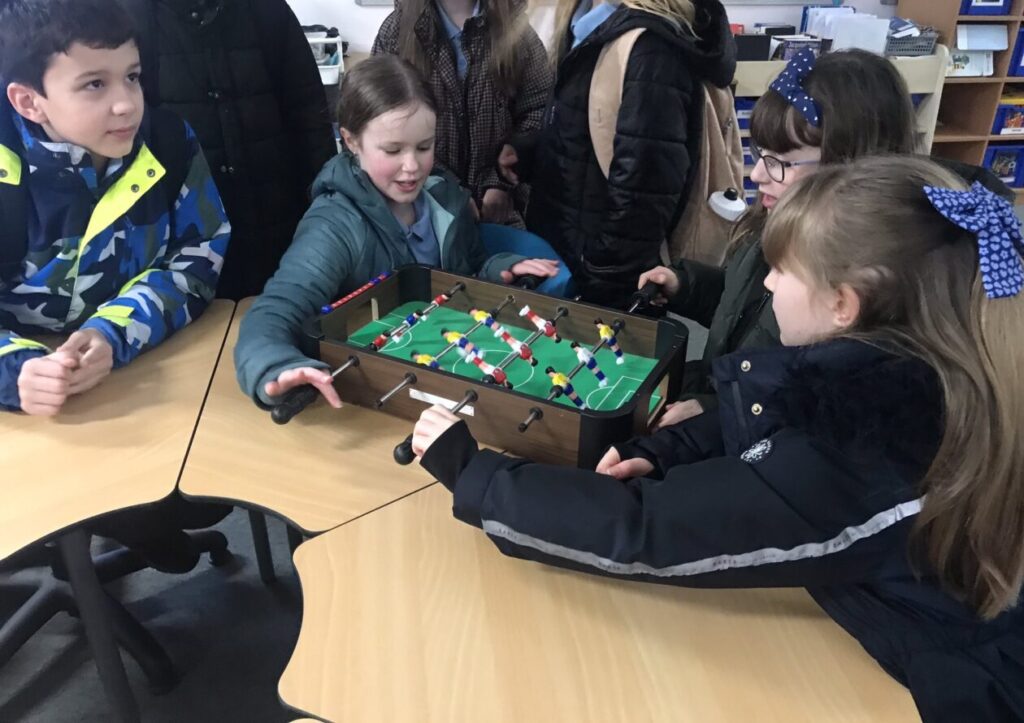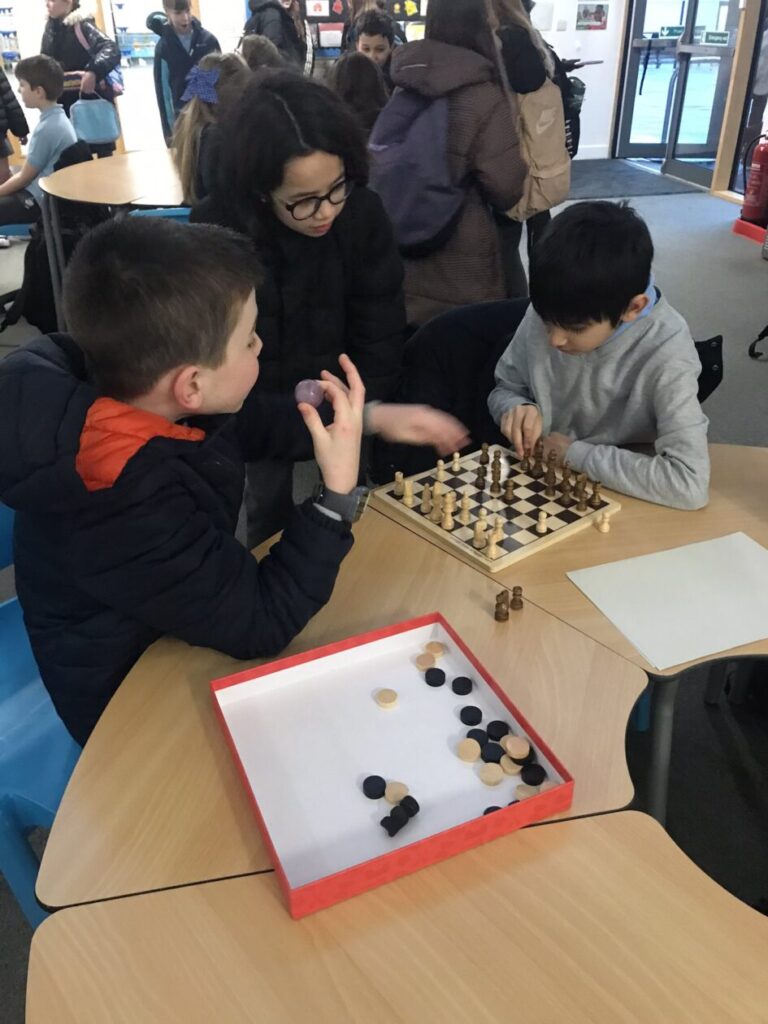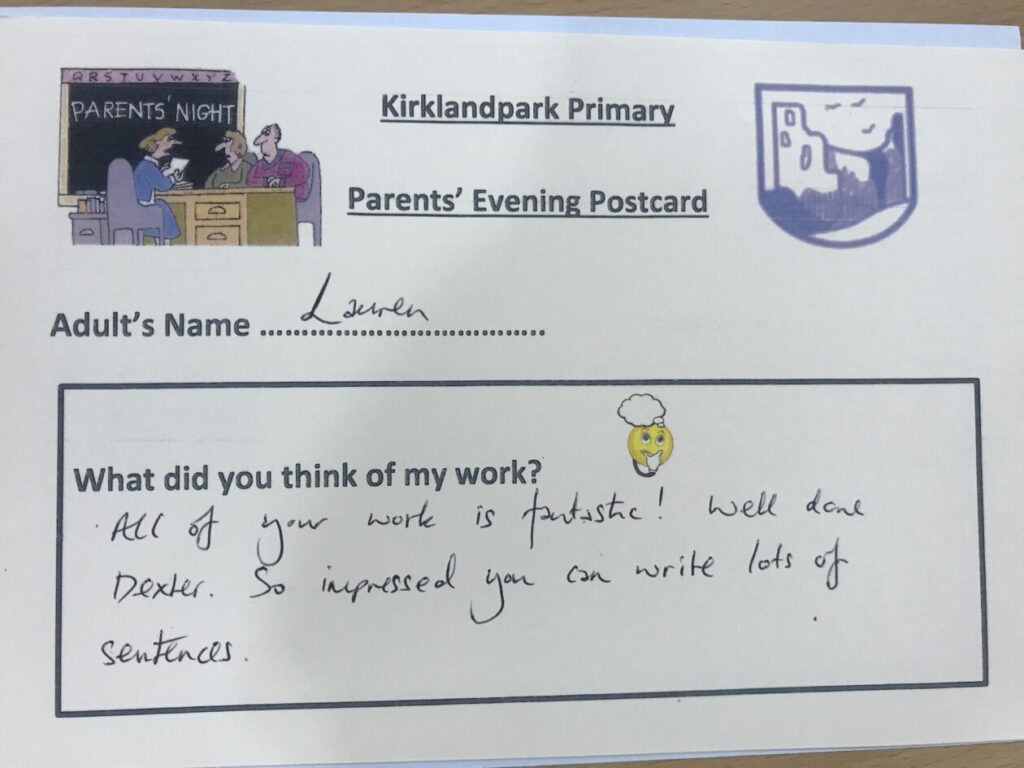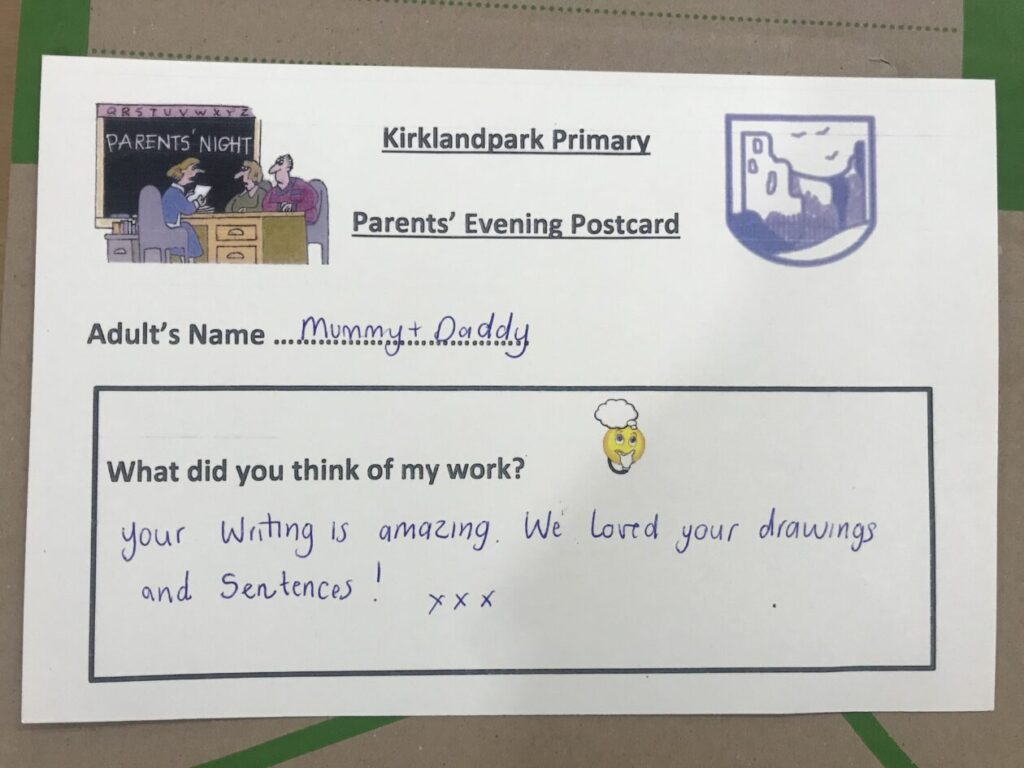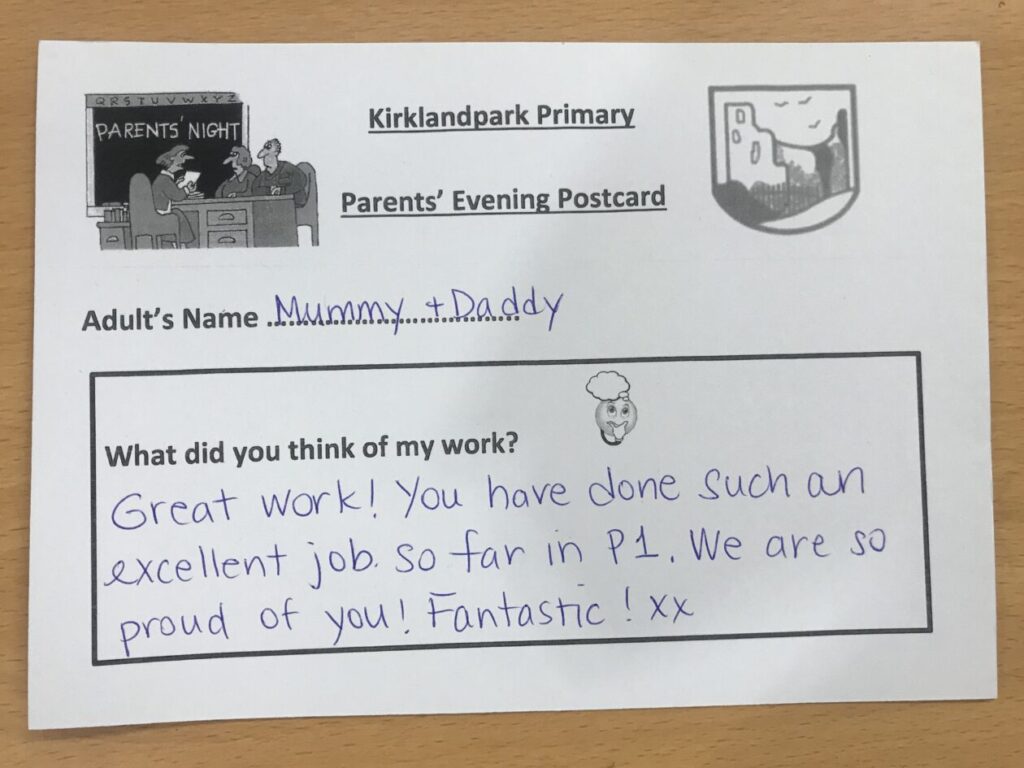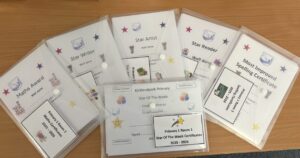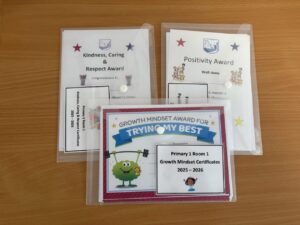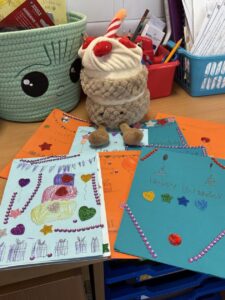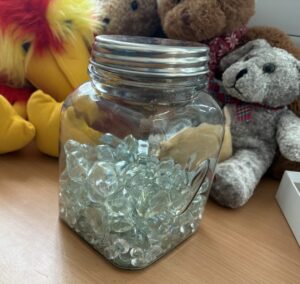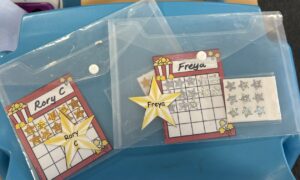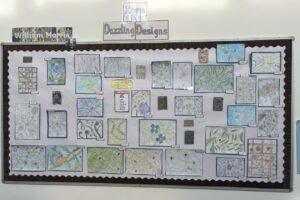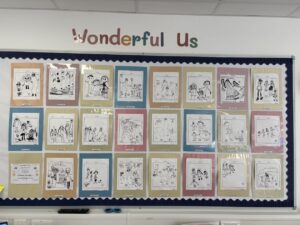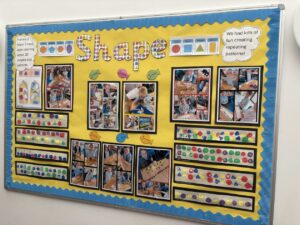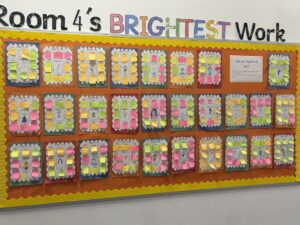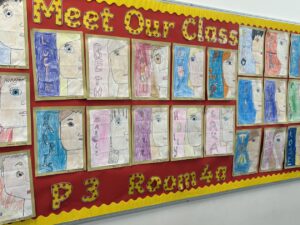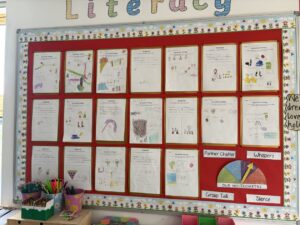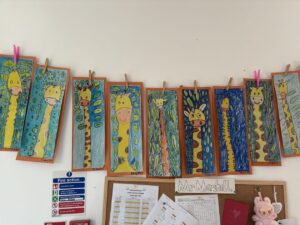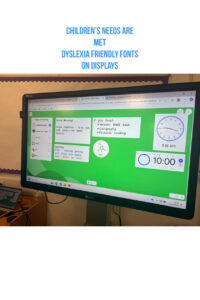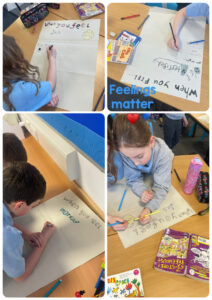Please find the evidence for the third Attachment Pledge – See the Whole Person
Accreditation Audit
Attachment-Informed, Trauma Sensitive Accreditation Toolkit
We have had to attach the full document as the PDF was not opening fully. We have highlighted the ‘See the Whole Person’ section. The document is in Word form so it will download rather than open in a new tab. Thank you.
Action Plan
Kirklandpark Primary Attachment Action Plan (Pledge: See the Whole Person)

QI 1. There is a commitment to encouraging connections across the establishment and promoting positive relationships based on an understanding of lived experience.

Kirklandpark Staff Training (Appendix 1)
- Our staff are regularly updated on Attachment and the SLC Attachment strategy during staff meetings, CAT nights and in-service training.
Kirklandpark Staff Training (Appendix 1)
Working Group Agenda (Appendix 2)
- Our Attachment working group meet regularly (every 2-3 weeks). The agenda is sent out to all staff beforehand, as this provides opportunities for the staff to message with any points they wish to raise at our next meeting. We also have representation from Early, First and Second level, with staff knowing they can approach a member within their department with anything they wish to discuss at the next meeting. Once the meeting is concluded, the agenda is sent out again to share the points that were discussed and actions to be completed.
Attachment Working Group Agenda (Appendix 2)
Attachment Ambassador/Leads Updates (Appendix 3a-3c)
- Our Attachment Ambassadors regularly update the wider staff on our Attachment journey and next steps for accreditation. We update our Kirklandpark SharePoint with academic reading and supportive materials that everyone can access to ensure we continue to be Attachment and Trauma informed.
Attachment Ambassador/Leads Updates (Appendix 3a)
Attachment Ambassador/Leads Updates (Appendix 3b)
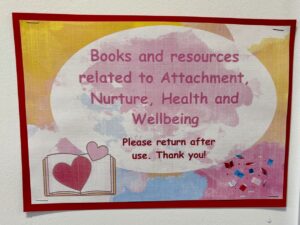
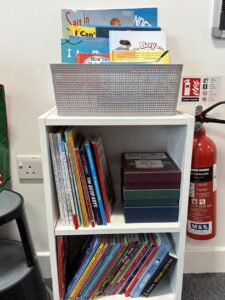
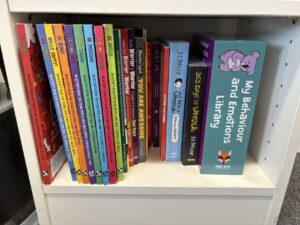
Emotion Coaching (Appendix 4)
- Kirklandpark hosted Emotion Coaching training for all staff within our school. Other schools within the learning community and SLC joined us for the session. This was beneficial to engage in professional dialogue to discuss how staff support pupils in other establishments. The training was shared on our Twitter/X page to update parents/carers.
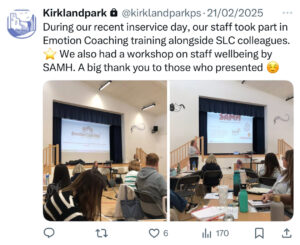
CIRCLE resource (Appendix 5)
- Our P1 staff have been trained in using the CIRCLE resource. This was specific to a pupil in their class who had additional support needs. Through the training, staff made adaptations to their environment, structures and routines and motivation before they focused on skills.
SLC Nurture Training (Appendix 6)
- Kayleigh Crawford the SLC Development Officer for Nurture, delivered a training session for all staff during an in-service day. Staff explored ways to ensure our school and classroom is a nurturing and inclusive environment for all pupils. At the end of the session, staff wrote their own pledge down as a next step for becoming a more Attachment and Nurture friendly school.
Nurture Pledges Staff (Appendix 6)
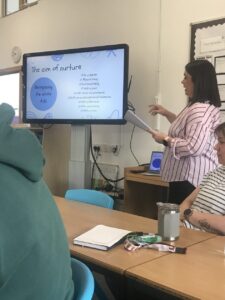
Transition Information (Appendix 7a-d)
- At Kirklandpark Primary, we plan to meet the needs of all pupils and our relationships are at the heart of our transition programme. We complete paperwork to pass information about each child onto new teachers. All staff get the opportunity to sit down with their children’s new teacher and discuss each pupils learning, needs, backgrounds and interests. We have enhanced transition for those pupils who require extra support and have four days on transition events for our new P1 intake. Many children will create a transition passport to hand over to their new teacher before beginning school in August.
Transition Information (Appendix 7a)
Enhanced Transition Invitation (Appendix 7b)
Passport format for transition (Appendix 7c)
Enhanced Transition Timeline (Appendix 7d)
Nurture (Appendix 8)
- We plan for pupils will Attachment and Nurture needs from P1-P7. Staff will be asked to identify those pupils requiring intervention or some pupils will continue to be part of a nurture group year on year, depending on their targets. Using the Boxall Profile, our PT will set individual targets to be developed during the sessions and communicate progress with parents and teachers.
KP Buddy Programme (Appendix 9)
- At Kirklandpark we have a buddy programme to support our younger pupils by buddying them up with our older children. Our P1 pupils have a P7 buddy to help support their transition from nursery into primary school. Our P2 pupils (previously P1) also maintain a KP Buddy in the form of our P6 pupils. Staff noticed that pupils moving into P2 really felt that they missed having the supportive/mentoring role of an older pupil, therefore we decided to maintain this for our P2 pupils. Our older pupils really enjoy nurturing the younger children whilst taking on a leadership role within our school. We have regular buddy events each term which provides opportunities for our children to be together.
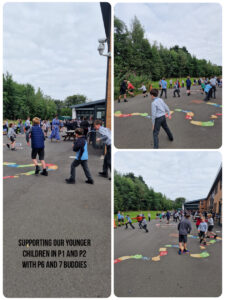
Playground PALS (Appendix 10 a-b)
- Our Playground PALS (P6&7) are available every break and lunchtime to support our younger pupils. Our older children are located in the P1-3 playgrounds, mixing with our younger pupils, supporting them socially by resolving issues and playing games.
Playground PALS (Appendix 10a)
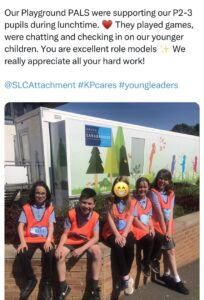
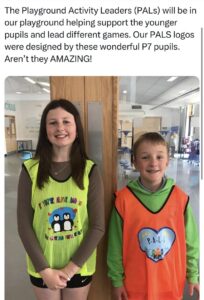
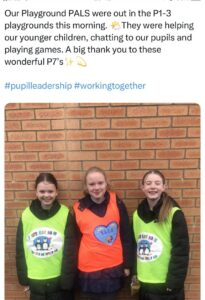
HWB Programme (Appendix 11)
- At Kirklandpark our Health and Wellbeing programme is based around Emotion Works. This programmes explores the different feelings and body sensations pupils may experience in everyday life. By taking part in these lessons, pupils are able to vocalise their thoughts and feelings, linking these to real life experiences. They share stories with their classmates and discuss important events in their lives.
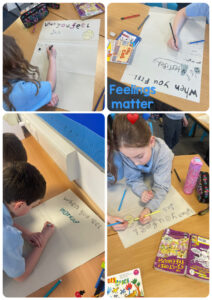
P5-7 Skills Workshops (Appendix 12)
- At Kirklandpark our P5-7 pupils get the opportunity to mix in their cohorts during Skills Workshops. These sessions run every Friday afternoon, with each workshop lasting a 4 week block. The children then rotate round for the full year until they have completed each block. Workshops such as food technology, coding, drama and STEM allows opportunities for our pupils to work together whilst developing their skills linked to SLC framework and DYW.
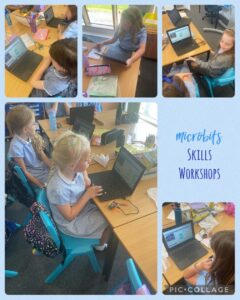
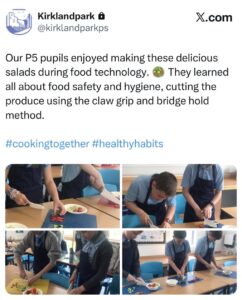
Nursery- P7 Pupil Committees (Appendix 13)
- All of our pupils at Kirklandpark are in a pupil leadership committee that meet once a month. Children are mixed within the committees and have the opportunity to work with children at different stages. This also provides staff the chance to build relationships with pupils out with their classroom setting.
Nursery- P7 Pupil Committees (Appendix 13)
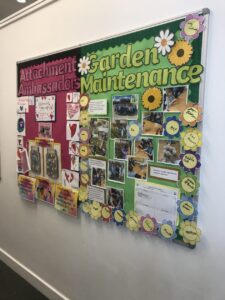
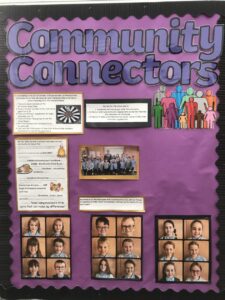
Extra Curricular Clubs (Appendix 14a-c)
Extra Curricular Clubs (Appendix 14a)
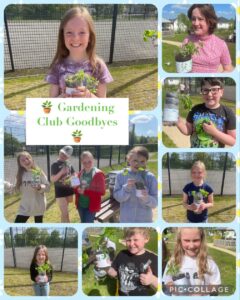
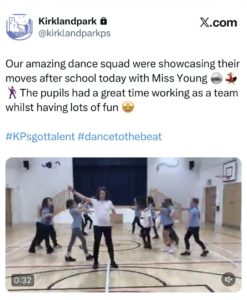
Whole School Sporting/House Events (Appendix 15)
- Our school provides many opportunities for our pupils to interact with children out with their classroom. We host many events, such as sporting events, house quiz and whole school karaoke.
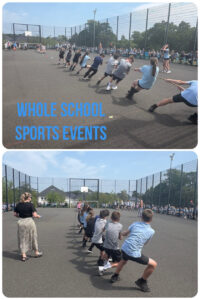
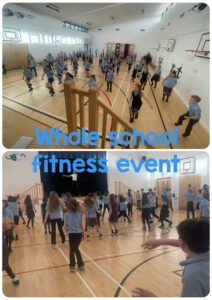
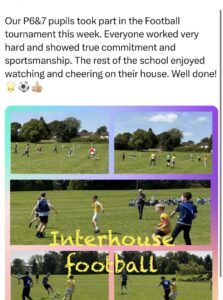
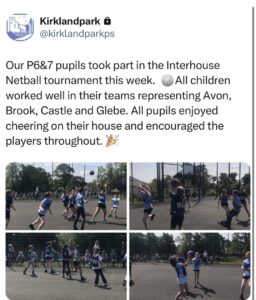
Meet the Teacher (Appendix 16)
- At the beginning of each academic year, our parents/carers are invited into our school to meet their child’s teacher. Our staff open our doors and welcome our families into have a look around the school and in our classrooms. They have the opportunity to look at their child’s work, explore their child’s classroom and interact with our teachers. We have this pencilled in our annual calendar and regular reminders and put on our school app.
Parental Engagement (Appendix 17)
- Our parents and carers are extremely supportive at Kirklandpark, engaging in a variety of ways. We have many parent helper volunteers, who assist with school trips, sporting events and local community outings. We also provide opportunities for our parents/carers to share their knowledge and expertise to help enhance our curriculum and provide enriched experiences for our pupils.
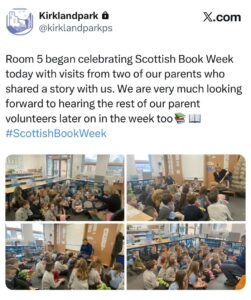
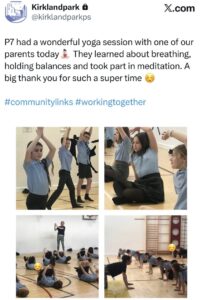
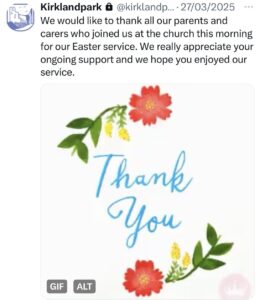
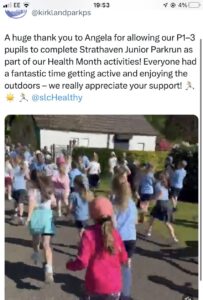
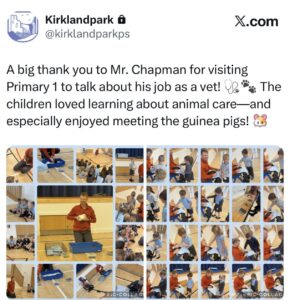
PTA/Parent Council (Appendix 18)
- Our school provides opportunities for our parents/carers to get together to discuss school improvement. Meetings twice a term and the PTA/Parent Council advertise to encourage more members to join to really work together to make a difference at Kirklandpark.
Team Building Active Schools (Appendix 19)
- Working in collaboration with Active Schools, we provide opportunities for our classes and cohorts to develop their team building skills. The children work on a variety of tasks, working with different children to solve varies problems and complete challenges. This was so successful last year, that we are organising this to be a yearly event as pupils really got to know their peers better, apply skills and develop stronger relationships.
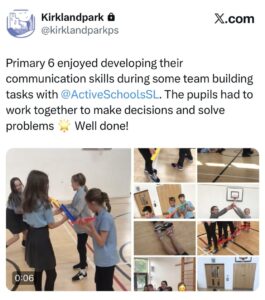
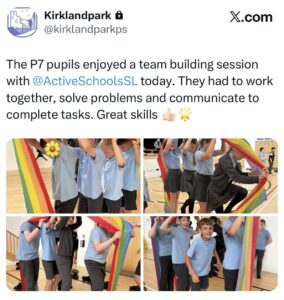
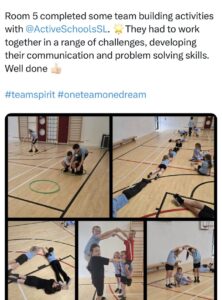
Kirklandpark Nursery Coffee and Chat (Appendix 20)
- Our nursery hold a termly ‘Coffee and Chat’ session, where they invite our parents/carers in for discussions around pedagogy, practice and policy. Issues around parental engagement and fundraising are also discussed so that our families have their say. Through coffee and chat, parents/carers can get together to build relationships with each other and staff.
Nursery Coffee and Chat Minutes (Appendix 20)
KP Brew and a Blether Sessions (Appendix 21)
- Through discussions with Julie Kiddie (Educational Psychologist) a parent workshop was organised to discuss a variety of topics. This was to provide a safe space for parents to come along, have a cup of tea and talk about their concerns, ask questions related to various topics and seek advice. We have an open door policy at Kirklandpark, and we strive to work together with our families to improve the wellbeing of all pupils.
Brew and Blether Letter (Appendix 21)
Pupil Learning Showcases (Appendix 22)
Pupil showcases are a yearly event where parents can attend and view their children work, observe presentations and ask questions. They are an informal opportunity for parent and child to participate in activities linked to certain curricular areas. The showcase is also an opportunity for children to take ownership of their learning as these showcases are organised and led by the children themselves. They develop valuable skills in team work, communication and build confidence and self-esteem. An example of these would be our P6 showcase on ‘Powering the Future’ and our P5 ‘Clyde in the Classroom’ topic.
R9 and R10 Showcase. (Appendix 22)
Pupil Chit Chat Groups (Appendix 23)
- At the end of each month, our P7 pupils host a chit chat group to gather information from our P1-7 pupils. Pupils get to voice their opinion about topics, such as our playground, homework, and classroom learning. We collate the results and share with our pupils, noting how we plan to make changes to improve our school from their feedback.
Planned Soft Starts (Appendix 24)
- Our staff create bespoke soft starts for our pupils, espcially those who find transitions difficult. Many of our children require these soft starts coming into school or after break/lunchtimes. The interests of the child is taken into consideration to ensure the activity is a task they would be engaged in, whilst linking this to CfE skills.
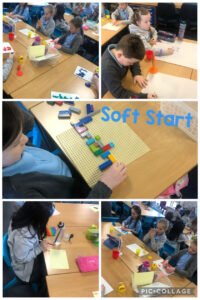
Common Room Drop Ins (Appendix 25 )
- To support our pupils social wellbeing, our Common Room is open to P6&7 pupils every morning. This provides opportunities for our pupils to come into school and play games with their peers at the beginning of the day. A member of staff is on hand for emotional check ins and having a quite place to go in the mornings helps the transition from home to school and reduce social anxiety for those pupils who are overwhelmed in our playground.
Parents Evening Postcards (Appendix 26)
- Our parents get the opportunity to look through their child’s work during parents evening. Within the folders, their child has completed a postcard with a message for their adult of what they want them to look at. The parents respond to their child, giving their feedback on their work. Our pupils then read the feedback the next day in class and discuss with their class teacher.
QI 2. There is a range of practice evident throughout the establishment to ensure that pupils and staff are noticed, recognised and valued for their individual qualities, skills and achievements.

Hug in a Mug (Appendix 27)
- Our ‘Hug in a Mug’ initiative was launched to show appreciation to our KP team. Each week the mug of goodies is placed on the desk/work space of a member of staff to show them that they are a valued member of our team. This person will then pass on the mug the following week. Staff have commented that it’s nice that their colleagues recognise their hard work and the sweets/chocolate go a long way and brighten their week.
Feel Good Friday (Appendix 28)
- We have recently revamped our Feel Good Friday to include more opportunities to put a spotlight on the amazing team we have at KP. We share staff training or staff experts in particular areas, staff wider achievements and more recently have included positive comments that pupils/parents have made about our staff. This is emailed out every week to our KP team and has really promoted staff building each other up and spreading positivity across our establishment.
Feel Good Friday (Appendix 28a)
Feel Good Friday (Appendix 28b)
Staff Supporting Each Other (Appendix 29)
- Our staff are very supportive of our colleagues within the school environment but in addition to this like to support each other with our personal endeavours. Recently, one of our staff members posted on our staffroom board about opportunities to watch her star in a ‘Legally Blonde’ drama performance. We can’t wait to cheer you on- go Heather!
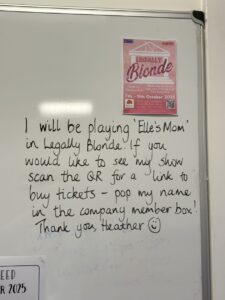
Promoting CLPL Opportunities (Appendix 30)
- At Kirklandpark, staff are very good at sharing opportunities for CLPL. Our team regularly forward emails about training courses and display posters in the staffroom. Our team are focused on driving change for school improvement through professional development. We believe that when the educators better themselves- so do the children.
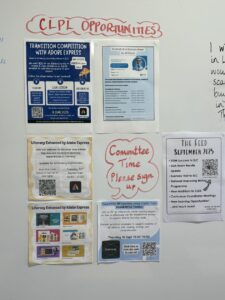
Collegiate Planning (Appendix 31)
- This year, there is a focus on collegiate planning across stages. This not only ensures a consistent approach to teaching, learning and assessment, but provides staff to work together, share their expertise and engage in professional dialogue.
Collegiate Planning (Appendix 31)
Staff Sharing CLPL (Appendix 32)
- From our Attachment survey, staff commented that they would like more opportunities to share their CLPL. Our staff work so hard on their professional development and wanted to support their colleagues too. This year, our HT has planned for a quick and informal ‘Teach Meet’ sharing opportunity, where people have the chance to share any training courses, academic research or good practice for 10 minutes during staff meetings or CAT sessions. This isn’t compulsory for all staff, but many of our team summarise their training and offer support through further drop in sessions/collaborative learning opportunities.
Sharing Staff CLPL (Appendix 32)
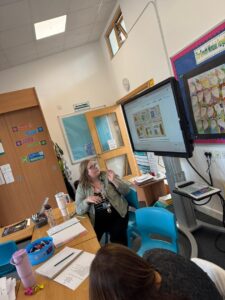
Staff Drop in Sessions (Appendix 33)
- Developing our own professional learning is important within our school and our team are very good at supporting their colleagues. Staff regularly hold drop in sessions after school, where people can showcase their professional learning or plan activities for our staff to take part in that they can replicate within their own classrooms.
Staff Drop In Session (Appendix 33a)
Staff Drop In Session (Appendix 33b)
Staff Drop In Session (Appendix 33c)
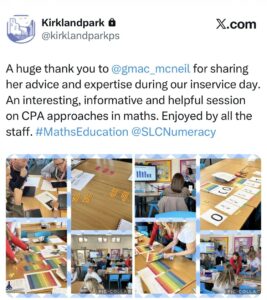
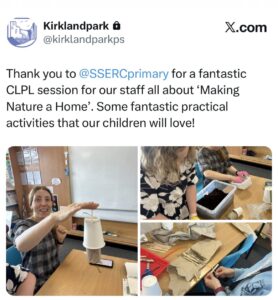
Staff Leading Change (Appendix 34)
- Our staff take the lead on new initiatives within our school that support our pupils, staff and families. Recently, staff have set up a sustainability shed near our front gates so that parents/carers can donate school uniforms that their child has outgrown. Our community and families place a huge emphasise on sustainability and this shed is well used by our nursery and primary parents. We have also set up a teacher sustainability station, where our staff can donate items that they no longer need. This is an excellent way to support staff who have changed stages or for our NQT members who are starting out on their careers. As we are a reading school, we also have a sustainability book scheme, where our local community can donate and borrow a range of books to read for enjoyment at home.
Staff Leading Change Initiative (Appendix 34a)
Staff Leading Change Initiative (Appendix 34b)
Staff Leading Change Initiative (Appendix 34c)
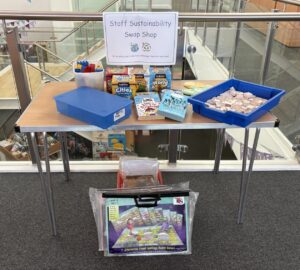
House Captain Elections (Appendix 35)
- Each year, we encourage our P7 pupils to run for House and Vice Captain positions. This will provide leadership opportunities and their role within the school helps support children from Early, First and Second level. Within their speeches, pupils will discuss their strengths, qualities and skills. We give our pupils a voice and each child gets to vote for their chosen member.
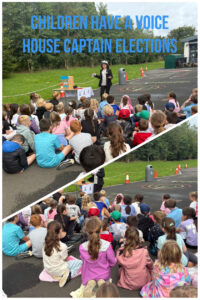
SLT Superstar Station (Appendix 36)
- Within our SLT office, you will find our Superstar Station. Staff regularly send children from each class to show good work to our SLT. The children get the opportunity to discuss their learning and are praised for their achievements. They get a sticker and choose from a range of prizes. This really helps to promote a hard working ethos within our school, motivates our learners to do their best and helps our children feel valued.
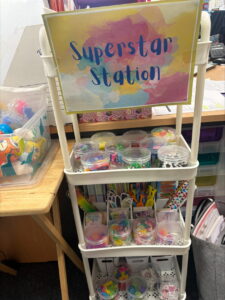
Skills Workshops (Appendix 37)
- Skills workshops are designed to develop the children’s understanding, knowledge as well as the many different skills linked to the focus. It also allows staff the opportunity to showcase their skills and knowledge in a fun and interesting way, It also provides staff the opportunity to work with children across P5 -7 throughout the year.
Accreditation Achievements (Appendix 38)
- Within our committees, pupils work towards gaining accreditation for the hard work they do within Kirklandpark. We share these achievements with our pupils during whole school assemblies, through staff emails and with our parents.
Attachment Achievement (Appendix 38)
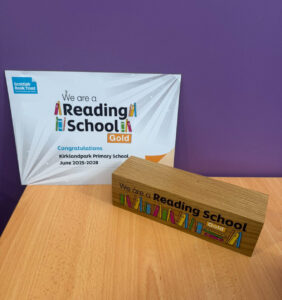
Wider Achievements Display (Appendix 39)
- Within our open areas, we have a display to celebrate wider achievements. Staff take photographs of their pupils with medals, trophies, certificates or even just write a comment about their achievements. This is then displayed around the school with a blurb, letting children out with their classrooms know about it and celebrate their achievement too. When we have visitors to the school or during parents evening, the achievement display is always a favourite as it helps our children feel that their achievements outside of school are equally important as their learning within school.
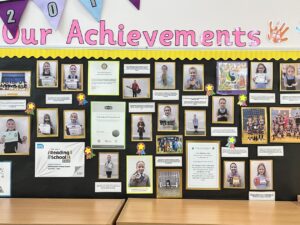
Sharing Wider Achievements with Parents (Appendix 40)
- Ensuring that our parents have the opportunity to celebrate wider achievements with our children is important. We regularly share achievements on our school Twitter/X account, where our parents can like and comment on our pupils hard work.
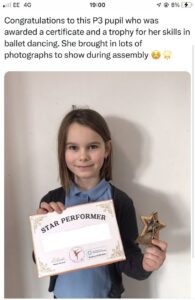
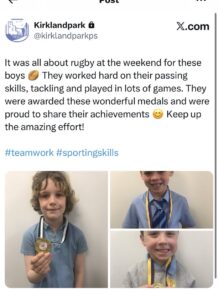
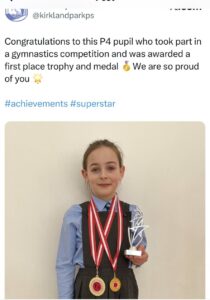
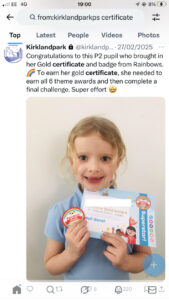
Assemblies (Appendix 41)
- Children speak about their wider achievements (medals, certificates and recognitions) in front of the school during our weekly assemblies. Our parents and wider community know that our assembly time incorporates sharing achievements and many of them will email in to put a spotlight on specific children. We have parents, grandparents, coaches and members of the community sharing what our children have been working on.
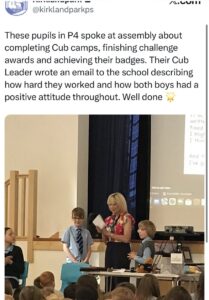
Assembly Certificates (Appendix 42)
Children’s strengths and achievements are recognised and celebrated at our weekly assemblies, with staff selecting a children from their class to receive a certificate for their hard work, effort, manners or kindness. The certificates are rotates on a weekly basis and include the following:
- Star of the Week
- Star Artist
- Star Writer
- Star Reader
- Maths Award
- Most Improved Speller
- Kindness, Caring and Respect Award,
- Growth Mindset Award
- Positivity Award
Birthdays (Appendix 43)
Birthdays are celebrated at assembly but also in classes. We recognise birthdays for all children as we do not know how these are celebrate in each household so we want to ensure all children feel special on their special day. They receive a birthday certificate and sticker at assembly and the whole school sings happy birthday.
Classes create birthday cards at the beginning of the year and these are stored in a box. When a child celebrates their birthday they can select a handmade birthday car from the box, designed by their classmate.
Praise and in class systems (Appendix 44)
Praise and positive reinforcement is used all the time in class and throughout the school. We have the school house points system but classes also have their own systems in place to praise children for their hard work, effort, manners and kindness.
Wall displays of good work from across the school (Appendix 45)
Children’s work is displayed in class and around the school to show their hard work and effort and to allow for staff, children, parents and visitors to see the great learning taking place in the school.
Whole School Talent Shows (Appendix 46)
- Each year, our school hosts a ‘KP’s Got Talent’ event, where pupils from each class can display their talents in front of the whole school. Our class teachers hold auditions within the classrooms and get pupils to vote who goes through to the final show. Our HT organises the running order, music and equipment- working with staff to put on a super show. From highland dancing, to magic, to singing and much more. We’ve had it all.
Classroom Showcases (Appendix 47)
- Throughout the year, each class or stage host a learning showcase where parents, carers and families are welcomed into our school. Our pupils showcase what they have been learning within their classrooms, celebrating success and answering lots of questions.
Class Learning Showcases (Appendix 47)
Staff regularly let pupils know they are ‘kept in mind’ and that they care by remembering what matters to them (Appendix 48)
Staff make positive comments to children on a regular basis both in class and throughout the school. This can be children in their class or passing in the corridor or in the lunch hall, All staff take an interest in all pupils, from SLT, teaching staff, support staff, office staff, janitorial and catering. Comments can be in regards to siblings, new hair cuts, pets, weekend plans or sports/hobbies they are involved in. Building these relationships are key to ensuring children feel comfortable speaking to us about their worries and trouble, but it all starts with them speaking to us about the positive and enjoyable aspects of their lives.
Pupil Check Ins (Appendix 49)
- We allocate time each week to those pupils who require additional check ins with our staff. Staff use our Nurture Neuk for a quiet and safe space to discuss how they are feeling, if the child has any worries/concerns or if the child simply just wants time to chat with their teacher. The children look forward to this time with their teacher and distressed behaviour in class has reduced due to a weekly slot with our most vulnerable children.
Room 5-11 Daily Check-ins (Appendix 49)
QI 3. When assessing and supporting pupils’ individual needs, the establishment considers experience of disrupted attachment or trauma and potential effects on learning, behaviour and relationships.

St Phnx Happy Place Workshop (Appendix 50)
- The band St Phnx came to Kirklandpark Primary to host their ‘Happy Place’ workshop. This workshop placed an emphasis on mental wellbeing and how anyone can experience issues surrounding mental health. The workshop explored how this is something we can’t control happening to us but there are ways to improve our mental wellbeing. One way is through creativity and our pupils took part in singing and dancing.
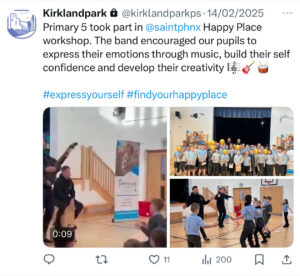
Child Protection Training and Briefing document (Appendix 51)
- Staff participate in Child Protection training on the first in-service day, as a whole staff and then as an individual person, They are provided with a briefing document and the small concertina. Staff are given opportunities to ask questions related to the training or individuals in the school. Staff are encouraged to share their concerns with SLT/Child Protection Officer no matter how small they think the concern is.
Child Protection Training and Briefing (Appendix 51)
Emotional Check In Charts (Appendix 52)
- Staff consider the potential impact of trauma and have regular emotional check ins with their pupils. Our staff use this to engage in dialogue with our pupils, discussing their emotions, what may have caused them to feel this way and what they feel in their body (linking with the Emotion Works strategies). This allows staff to monitor each child’s emotions, helping staff plan/adapt their learning to suit the needs of the individuals and provide emotional support for our young people.
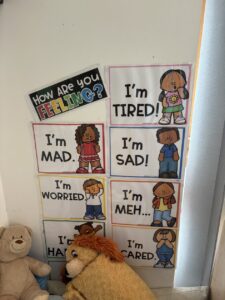
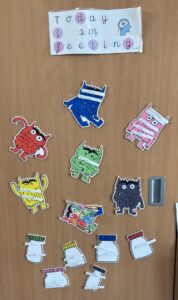
Inclusive Classroom Environments (Appendix 53)
- Throughout the year, our staff will have discussions with their pupils about their classroom environment. Our staff understand that if pupils don’t feel safe, secure, listened to and respected that pupils wellbeing and learning will be impacted. Teachers consider this when planning for pupils on an individual basis and when thinking of their class as a whole.
Inclusive Classrooms (Appendix 53)
Emotion Works (Appendix 54)
- Our Emotion Works programme helps to develop pupil’s emotional literacy. It explores different emotional language, triggers, body sensations, behaviours and ways to self regulate their emotions. Within our HWB lessons, pupils discuss life events that have made them feel a certain way and emphasis is placed upon every feeling being valid.
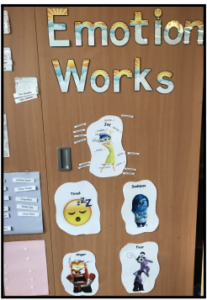
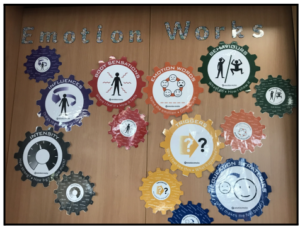
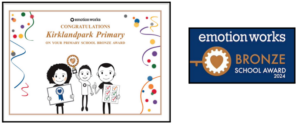
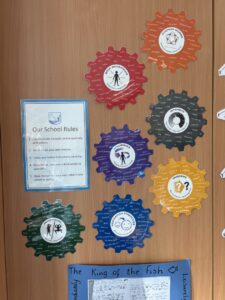
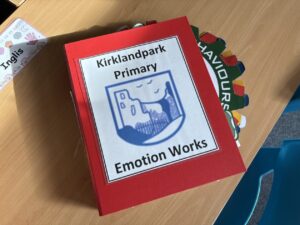
HWB Jigsaw Resources (Appendix 55)
- Within our nursery and P1 classes, emotional resilience, life skills, and academic success is targeted through the Jigsaw resource. The resource helps children understand themselves and the World around them. Through activities on social situations, mental wellbeing and mindfulness, children build the stepping stones for personal growth.
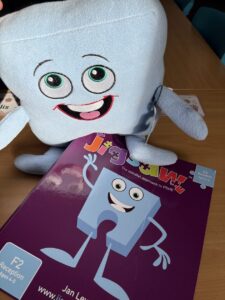
Parental Wellbeing Workshop (Appendix 56)
- Our staff understand the impact of disrupted attachment and trauma on pupil attendance, engagement and attainment. By welcoming our parents/carers into our school and working with the with our families will help us support all of our pupils at KP.
Supporting Your Child’s Wellbeing (Appendix 56a).
Parental Wellbeing Workshop (Appendix 56b)
Transition Information (Appendix 57)
- Staff share their experiences and relationships of children with the teaching and support staff who will be working with them in the future. Transition paperwork and conversations include information on academics, social and emotional wellbeing, They also discuss strengths, areas of development and strategies/interventions tried and have helped but also those that have been tried but have not been successful. This is how we ensure that new staff know ‘what has happened to the children’ and not ‘what is wrong with the children’.
Transition Notes template (Appendix 57)
Specialist Support Teacher Report and Review Meetings (Appendix 58)
- SLT and SST liaise on a weekly basis, organising and planning for children throughout the primary stages to ensure progress in attainment and engagement. Adaptations and strategies are discussed and integrated into their daily plans and meetings are held with teachers to ensure they have an understanding of the child’s background, difficulties and triggers.
- As part of the assessment process for literacy difficulties/Dyslexia Consultations, SLT and SST create reports after gathering all necessary evidence which include teacher, pupil and parent views as well as assessment results. During review meetings with parents, we discuss the report and next steps for the child, Next steps include what can be used in school but also what may help at home, We are careful to tread lightly and respectfully as we are aware of the difficulties and strains that parents face at home with their children in regards to homework, simple tasks and instructions when it related to their children. We offer lots of support and assistance during the meeting but also offer our help after the meeting, if they are struggling or have any further questions.
JW Assessment November (Appendix 58)
Additional Support Plans (Appendix 59)
- We have a number of children with ASP’s which consist of individual targets related to literacy, numeracy and or health and wellbeing. These individual support plans are created through discussions with previous and current teachers as well as SLT and SST input. Staff take into account potential trauma and triggers when creating targets and thinking about the strategies, interventions and adaptations required for the children in their care to settle and thrive.
CS ASP 2025-2026 (Appendix 59)
Restorative language (Appendix 60)
We have discussed with staff about the importance of the language we use with the children we encounter in our classes but also throughout the school. One of our pledges last session was to focus on using a shared language, language which all children understood no matter who they encountered in the school. We used the following slide from one of the Attachment networking meeting to remind us of this shared language.
Restorative language (Appendix 60)
Mindfulness for Kids/Relaxation (Appendix 61)
- Staff have undertaken Mindfulness training and use a variety of audio clips and strategies to create a classroom of calm. There are a few video clips used by the majority of staff on a regular basis to help children regulate their emotions and re-focus their attention and become ready to learn.
EBSNA Paperwork (Appendix 62)
- Within our school we have one pupil who has attended school but very quickly that changed and they became a school refuser. We spent a lot of time discussing with parents and the pupil ways we could adapt the environment, reduce their anxiety in attending in the morning, adapting their routine to suit their mood, sleep patterns as well as the way work was presented. Through discussions with other agencies such as Specialist Support and Educational Psychologist, we made small steps. We have sought advice in regards to non attenders and the ESBNA website and documentation has been shared, which gave us a better understanding of emotional based non attendance and additional ways of helping the young person in question.
https://www.catalystpsychology.co.uk/emotional_based_school_avoidance
Early-help-assessment-practitioners-guide-26-09-24
EBSNA-Support-Plan-Template-1 (1)
Staged interventions (Appendix 63)
QI 4. The establishment encourages awareness and understanding of the social and cultural backgrounds and experiences of pupils, families and staff.

Classroom Connection Activities (Appendix 64 a-d)
- At Kirklandpark, our pupils are encouraged to think about and celebrate differences in others. Our staff plan classroom connection activities linked to our HWB lessons, getting children to think about what makes them unique, what do children have in common and how are they different. Our staff have a consistent message that it’s good to be an individual and this should be respected and accepted.
We Are All Linked (Appendix 64a)
Wonderful Us Display (Appendix 64b)
Our Class is a Family (Appendix 64c)
Loving Myself as a Learner (Appendix 64d)
P1 All About Me Bags (Appendix 65)
- Staff get to know pupils within the context of their families through ‘All About Me’ bags. The children each take a turn to bring the bag home and can fill it with items to bring to school that represent them. They share lots of family photographs and stories about their family. The children describe they likes, dislikes, hobbies and interests- really showcasing ‘What makes me…..me’.
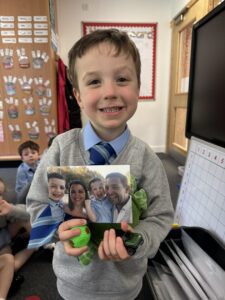
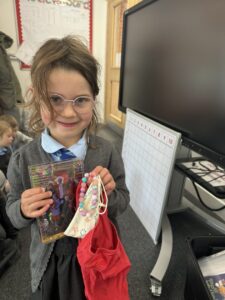
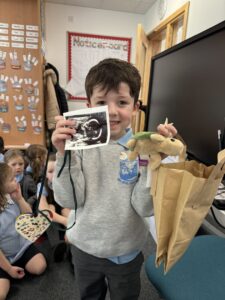
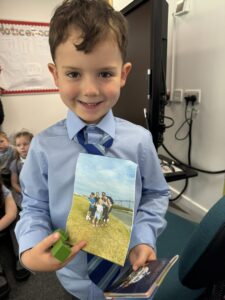
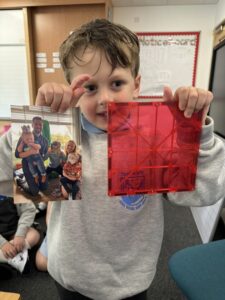
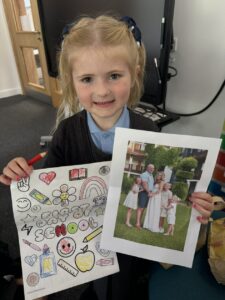
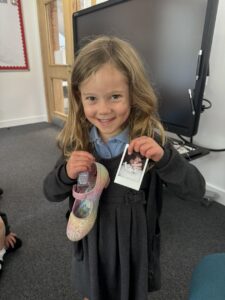
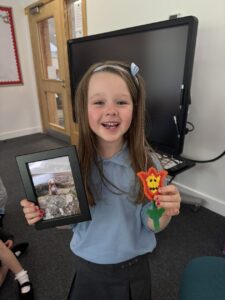
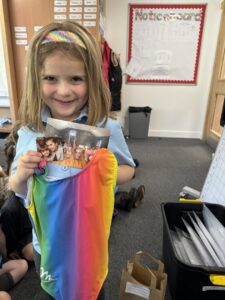
Class Charters (Appendix 66)
- Through creating our class charters, our children explore how each member of the class is different. All children have different needs and wants, however we all have the same rights. They get to decided on a display idea that is personal to their classroom to remind them of their rights and how each child should feel included and accepted in our school.
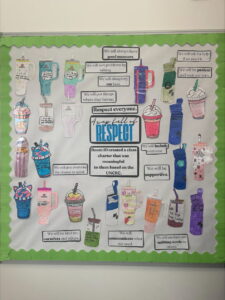
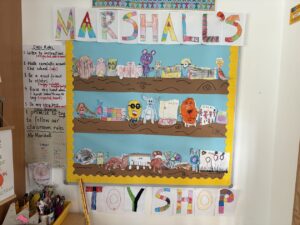
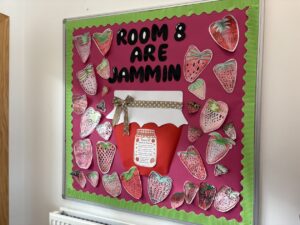
Loaves and Fishes Community Charity (Appendix 67)
- At Kirklandpark, we regularly make connections with our local community. Although our local area is quite affluent, we do have some families who use the food banks and charities to support their households. Our P1 pupils decided to have a ‘Toy Drive’, donating old or unused toys to give to families less fortunate. We invited Maria from Loaves and Fishes to come and speak more about our local community and the need for supporting charities within the area. Our children learned more about how everyone has different experiences and a small donation can go a long way in people’s lives.
Loaves and Fishes (Appendix 67a)
Primary 1 Toy Drive (Appendix 67b)
John Hastie Museum (Appendix 68)
- Throughout the year, each stage visits the John Hastie Museum. This is a huge part of our local community and the museum is run by local residents. Our pupils really enjoy learning about the local area and how this has changed throughout the years. They have the opportunity to ask lots of questions and go a walking tour of Strathaven.
John Hastie Museum (Appendix 68)
Easter Service (Appendix 69)
- With the church being a big part of our local community, we regularly attend whole school celebrations at the parish. As part of these events, we invite our parents/carers to join us to celebrate events such as Easter, Christmas and our P7 Leavers service. Bringing the pupils, teachers, parents and church together for shared experiences helps us build relationships with our wider school community.
Parental Engagement Opportunities (Appendix 70)
- Our establishment understands the importance of families being part of our school. We provide regular opportunities for parents/carers/family members to come into our school for a variety of reasons. This helps practitioners continue to build links with our community and encourage our community to come into our school to support our pupils. Everyone is welcome at KP.
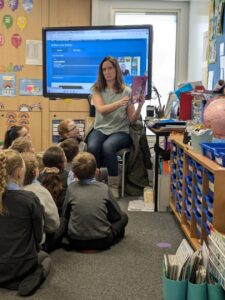
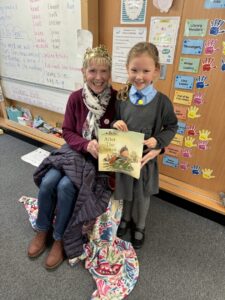
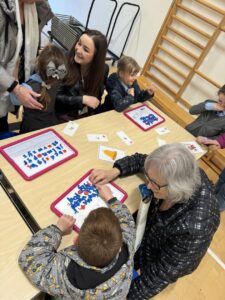
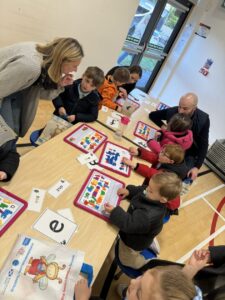
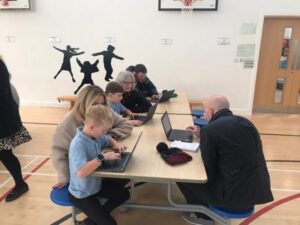
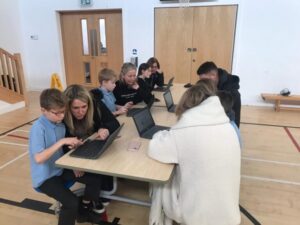
SHANARRI Wheels (Appendix 71)
- Each term we focus on one of the eight wellbeing indicators during assembly. Each class will then go back to their classrooms to discuss the indicator in more depth in order to fill out the appropriate section of the wheel. Children will write or draw how this indicator relates to their lives, providing opportunities for pupils to discuss with their peers and their teacher. Staff use this to gain a better insight into their learners, families and background- using this to support our pupils.
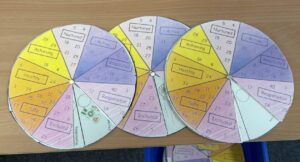
Growth Mindset (Appendix 72)
- Our pupils recognise that each person learns in different ways and we celebrate that everyone has their own style of learning. Each child is able to talk about their strengths and aspects of their learning they need to develop. We place a big emphasis on having a Growth Mindset and through HWB lessons, explore that every child will have strengths in different CfE areas, work at different paces and learn in different ways. Mistakes are good and we can learn from them!
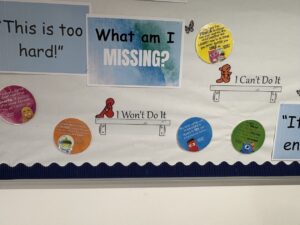
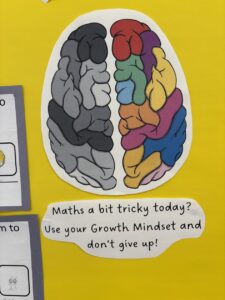
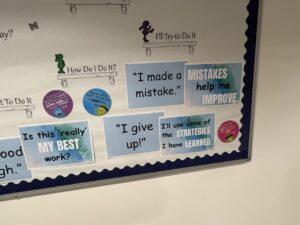
Thank you for taking the time to read through the evidence gathered for
‘See The Whole Person’.
